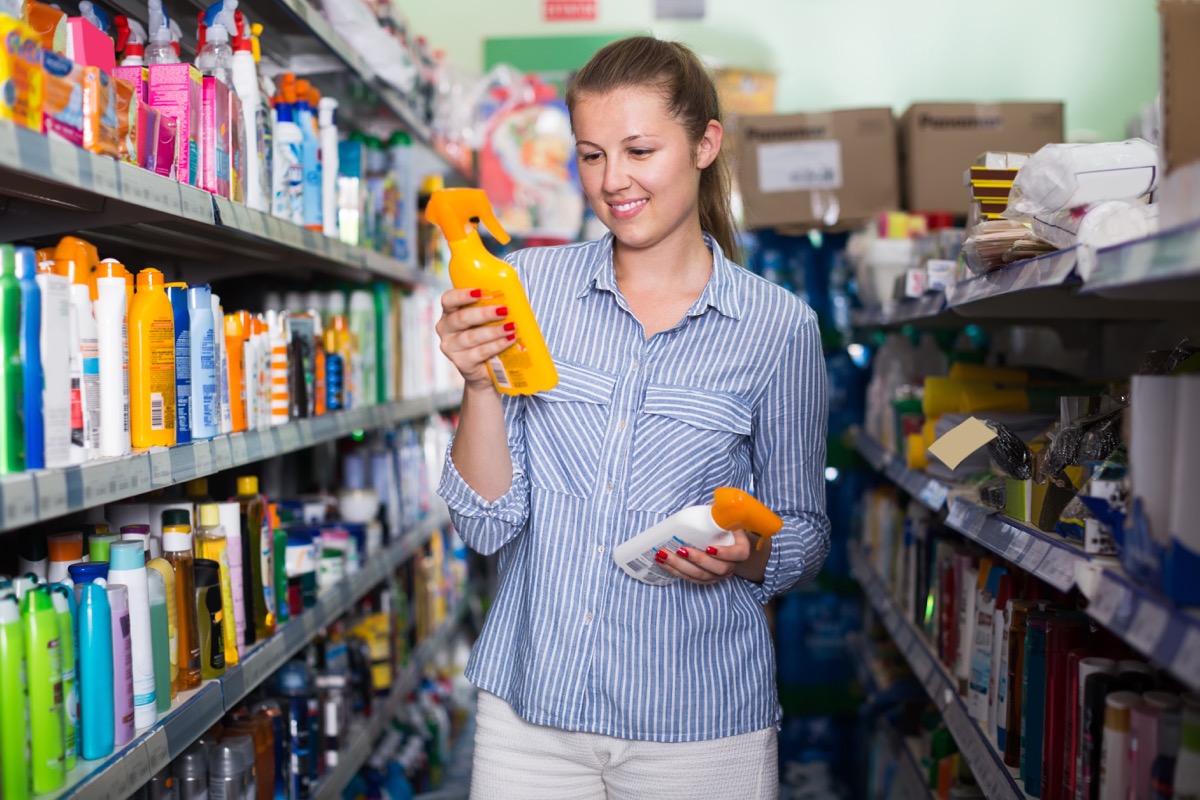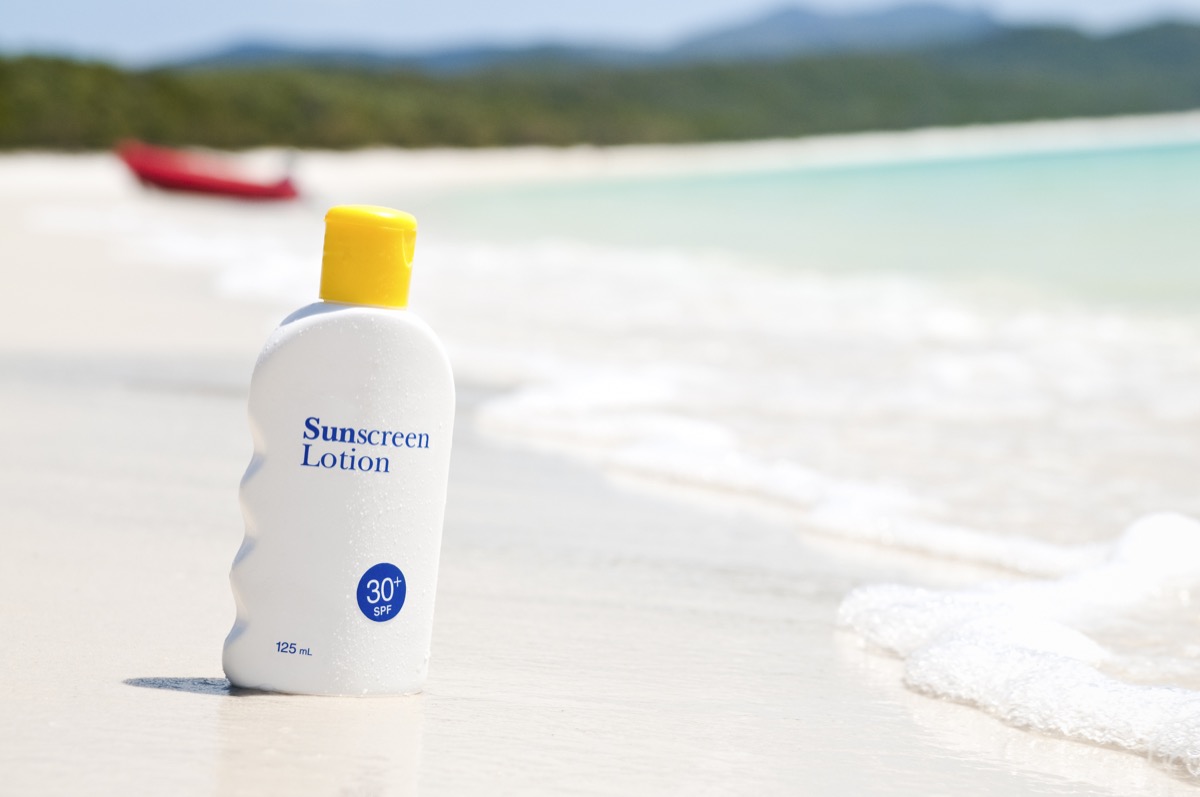RELATED: Never Go in a Lake If You See This One Thing, Local Officials Warn. Retrieving your beach or pool supplies out of storage is the true sign that a new summer season has begun. But before you grab last year’s tote bag and run for the sun, the FDA says it’s important that you check your SPF bottle to make sure it will still be able to keep you safe from harmful UV rays. “To make sure that your sunscreen is providing the sun protection promised in its labeling, the FDA recommends that you do not use sunscreen products that have passed their expiration date (if there is one),” the agency says on its website. “Expired sunscreens should be discarded because there is no assurance that they remain safe and fully effective.” While checking for a “best by” date may seem simple enough, some products are unfortunately less straightforward with how long they’ll last. But if your tube, spray can, or bottle of sunscreen isn’t marked with a specific date, there’s still a rule to knowing when it’s time to toss it out. “FDA regulations require all sunscreens and other nonprescription drugs to have an expiration date unless stability testing conducted by the manufacturer has shown that the product will remain stable for at least three years,” the agency says. “That means a sunscreen product that doesn’t have an expiration date should be considered expired three years after purchase.“ae0fcc31ae342fd3a1346ebb1f342fcb RELATED: If You See This at the Beach, Don’t Go in the Water, Experts Warn. While most foreign travel might feel like a distant memory after more than a year of life under the COVID-19 pandemic, there may be a chance you’ll be hitting a beach outside U.S. borders in the future. If you’re shopping for your SPF when you land abroad, the FDA says it’s important to take careful note of what you buy to ensure it’s going to be up to snuff when protecting you from the sun’s rays. “In Europe and in some other countries, sunscreens are regulated as cosmetics, not as drugs, and are subject to different marketing requirements. Any sunscreen sold in the United States is regulated as a drug because it makes a drug claim—to help prevent sunburn or to decrease the risks of skin cancer and early skin aging caused by the sun,” the agency points out. “If you purchase a sunscreen outside the United States, it is important to read the label to understand the instructions for use and any potential differences between the product and U.S. products.” But it’s not just about how old your sunscreen is: how you store and treat the bottle before you finish it can greatly affect how well it works. The FDA says that the best way to keep your SPF in good condition is to avoid exposing it to direct sun for long periods of time, suggesting to “protect the sunscreen by wrapping the containers in towels or keeping them in the shade.” If you’re going to be outdoors on a hot day for a long time, the agency suggests keeping the bottles in a cooler between reapplications. RELATED: Never Eat Leftovers That’ve Been in the Fridge This Long, Experts Warn.



